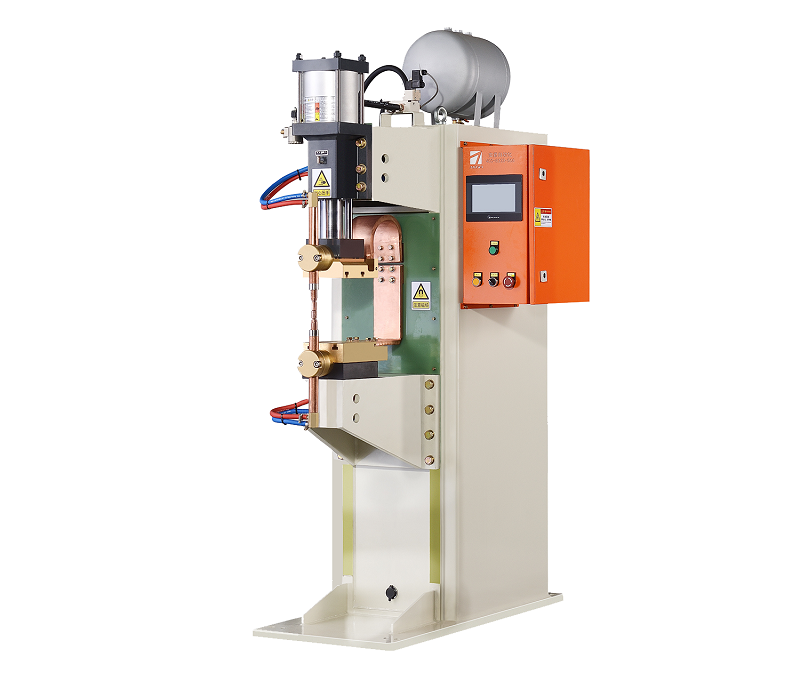Electrodes play a crucial role in the welding process of medium frequency inverter spot welding machines. The choice of electrode materials directly affects the quality, performance, and durability of the welds. This article aims to discuss the requirements for electrode materials in medium frequency inverter spot welding machines, highlighting key considerations for selecting suitable materials.

- Electrical Conductivity: One of the primary requirements for electrode materials is high electrical conductivity. Efficient transfer of electrical current through the electrodes is essential for generating the heat required for welding. Copper and copper alloys are commonly used as electrode materials due to their excellent electrical conductivity.
- Thermal Conductivity: Along with electrical conductivity, good thermal conductivity is important for effective heat dissipation during the welding process. The electrode material should efficiently dissipate heat to prevent overheating and maintain stable welding conditions. Copper exhibits favorable thermal conductivity, making it a preferred choice for electrode materials.
- Mechanical Strength: Electrode materials should possess adequate mechanical strength to withstand the welding process. The electrodes are subjected to significant pressure and mechanical forces during welding, and they should not deform, break, or wear excessively. Copper alloys, such as beryllium copper, are often used as they provide a balance of strength and conductivity.
- Durability and Wear Resistance: Electrodes should have good durability and wear resistance to withstand repeated welding cycles. They should resist degradation, pitting, or surface damage caused by welding sparks, arcing, or mechanical contact with the workpiece. Proper electrode materials should maintain their shape and surface quality over an extended period of use.
- Resistance to Contamination: Electrode materials should exhibit resistance to contamination or chemical reactions that can affect their performance. They should be resistant to oxidation, corrosion, or chemical interactions with the workpiece materials or the welding environment. This ensures the stability and consistency of the welding process.
- Cost-effectiveness: While considering the performance requirements, the cost-effectiveness of electrode materials is also an important factor. The materials should provide a balance between performance and cost, allowing for efficient and economical production.
Electrode materials in medium frequency inverter spot welding machines need to meet specific requirements to ensure optimal performance and reliable weld quality. High electrical and thermal conductivity, mechanical strength, durability, wear resistance, resistance to contamination, and cost-effectiveness are key considerations when selecting electrode materials. Copper and copper alloys, such as beryllium copper, are commonly used due to their favorable properties. Careful selection of electrode materials contributes to successful welding operations, improved productivity, and consistent weld quality.
Post time: May-25-2023


